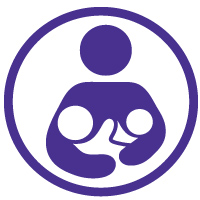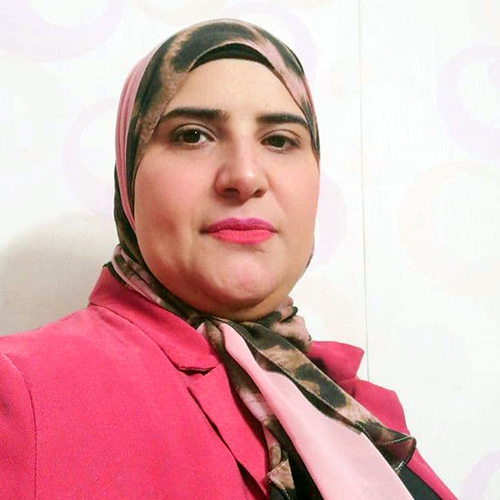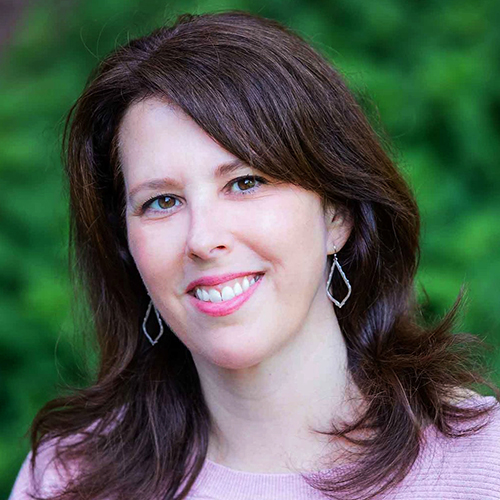 IBCLC Detailed Content Outline: Clinical Skills / Education and Communication Focused CERPs - Section VII B
IBCLC Detailed Content Outline: Clinical Skills / Education and Communication Focused CERPs - Section VII B
Access CERPs on Clinical Skills / Education and Communication for the IBCLC Detailed Content Outline recertification requirements. On-demand viewing of the latest Clinical Skills / Education and Communication focused IBCLC CERPs at your own pace.

Mastering Cross-Cultural Communication Skills: How to Speak and Engage Effectively Across Cultures and Varied Audiences

Kimberly Seals Allers is an award-winning journalist, author and a nationally recognized commentator, consultant and advocate for breastfeeding and infant health. A former writer at FORTUNE and senior editor at Essence magazine, Kimberly’s thoughtful and provocative online commentaries on motherhood and infant health and the intersection of race, class and culture, received over 10 million page views last year.
In addition, Kimberly specializes in issues related to African American motherhood and breastfeeding. In March 2012, she launched Black Breastfeeding 360°, a first of its-kind online multi-media content library on the black breastfeeding experience. She is author of The Mocha Manual to a Fabulous Pregnancy (Amistad/HarperCollins) a hip and informative African American pregnancy guidebook and two other Mocha Manual™ books in the series. She is the founder of MochaManual.com, a pregnancy and parenting destination and blog for African Americans and former editorial director of The Black Maternal Health Project of Women’s eNews.
Kimberly is a graduate of New York University and Columbia University Graduate School of Journalism. A divorced mother of two, she lives in Queens, New York City, with her children and two turtles.
Topic: Raising Our Voice: Breastfeeding Advocacy for Health Care Providers, Professionals, and Volunteers' - [View Abstract]
The word communication comes from the Latin root word meaning “shared” as in a shared language. However, we often find that different practitioners—doctors, nurses, IBCLCs, etc.—each have their own “language”, which is often not the language of mothers and fathers. How do we actually develop a “shared” language? What are the tools needed to better understand the “speak” of mothers in your community? This presentation will outline the challenges of current common communication efforts, highlight best practices from across the U.S. and explain critical cultural nuances of words and communication techniques for mothers and fathers. It will offer a virtual toolkit for understanding the “language” of local parents and how to quickly start speaking that language to improve community engagement outcomes and breastfeeding goals.

Mindful Breastfeeding: How Lactation Professionals Can Support Calm and Connection

Joy MacTavish, MA, IBCLC, RLC is an International Board Certified Lactation Consultant and certified Holistic Sleep Coach focusing on the intersections of infant feeding, sleep, and family well-being. Through her business, Sound Beginnings, she provides compassionate and evidence-based support to families in the greater Seattle area, and virtually everywhere else. She entered the perinatal field in 2007 as birth and postpartum doula, and childbirth and parenting educator. Joy holds a Master of Arts in Cultural Studies, graduate certificate in Gender, Women and Sexuality Studies, and two Bachelors degrees from the University of Washington. She enjoys combining her academic background, analytical skills, and passion for social justice into her personal and professional endeavors. Joy serves as an Advisory Committee Member and guest speaker for the GOLD Lactation Academy. When not working or learning, she can be found homeschooling, building LEGO with her children, or dreaming up her next big adventure.
Topic: Full-Term Breastfeeding/Chestfeeding: Benefits, Considerations, and Ways to Offer Support - [View Abstract]
Topic: Mindful Breastfeeding: How Lactation Professionals Can Support Calm and Connection - [View Abstract]
Topic: Sending Reports: What’s in it for IBCLCs? - [View Abstract]
Topic: Supporting Clients Facing Fertility Treatment - [View Abstract]
Topic: The Intersection Between Lactation, Sleep, and Family Well-Being - [View Abstract]
Topic: Weaning: Supporting Families Stopping Lactation and/or Ending Their Breastfeeding/Chestfeeding Relationship - [View Abstract]
The age-old practice of mindfulness meditation has increased in popularity across the globe over the past four decades and gained traction within the psychological and medical fields. Mindfulness centers on non-judgmental awareness of one’s bodily sensations, thoughts, and emotions in the present moment. It has been scientifically shown to reduce stress, chronic pain, medical and psychological symptoms, and enhance immune function. Mindfulness practices often focus on psychobiological processes, which makes them well suited as in intervention during the perinatal period, and even more specifically breastfeeding. This presentation outlines the ways in which mindfulness can positively impact lactation, during its normal course and especially when there are challenges. As lactation professionals who clinically and holistically support clients, it is beneficial to be able to share mindfulness strategies that can serve as a bridge between the mental, emotional, and physiological realms. Through a greater understanding of the practical aspects of mindfulness, gentle interventions can be incorporated into each feeding session. By supporting calm and connection within the parent and between the parent and infant, the experience of breastfeeding can be enhanced.

View Details / Enroll

View Details / Enroll
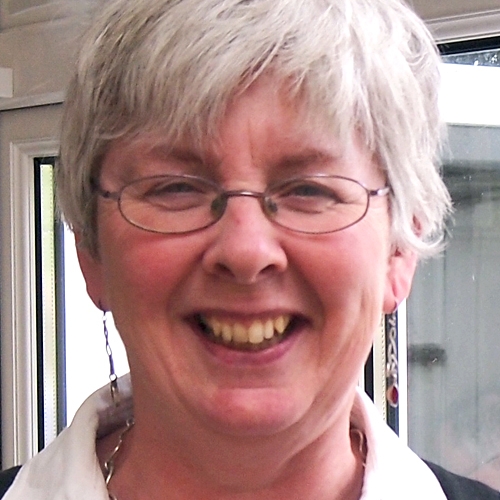
Mothering Experiences: The Development of Self-Efficacy in First Time Mothers

Eithne Murray developed a passion for breastfeeding as a result of her own experience as a mother – a passion she did not know she had. She initially trained as a breastfeeding counsellor with NCT in the UK and, upon moving back to Ireland, trained as a breastfeeding counsellor with Cuidiú-the Irish Childbirth Trust, later becoming a tutor. She qualified as an IBCLC in 2009, and worked privately for a while. She now works predominantly in education. This presentation was based on the research undertaken for a dissertation on transition to motherhood as part of her studies for a Masters degree.
Aims: The aims of this study were to explore the role of education and support in the development of self-efficacy in first-time mothers during the transition to motherhood.
Methodology: Using a qualitative approach, first time mothers, whose babies were less than 15 months old, were recruited from among women who had attended various models of antenatal classes They took part in a semi-structured interview on their experiences and personal constructs relating to the perceived quality of support they received were then elicited.
Findings: Becoming a mother was a process that held great meaning for all the mothers. For the women interviewed, breastfeeding was both a practice and a process which held meaning for these women. The impact of the various forms of antenatal classes in developing self-efficacy for all parental tasks is explored. The elicitation of personal constructs provides a novel format for women to evaluate the quality of the support they received – a topic which has been seldom researched.

View Details / Enroll
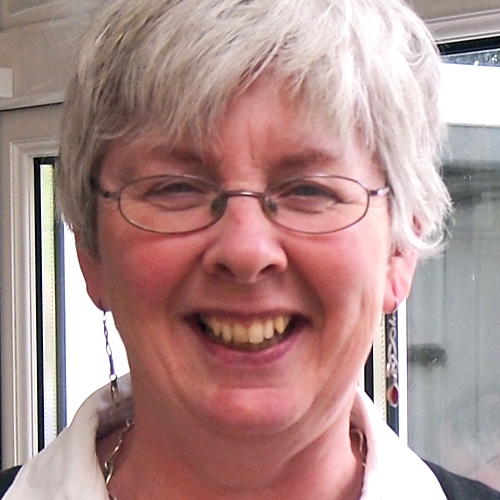
View Details / Enroll
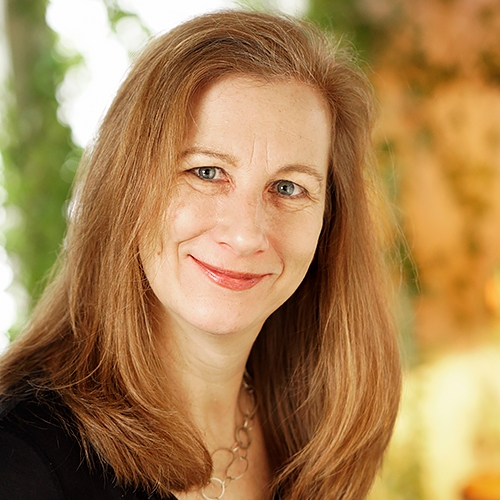
Moving from Evidence to Practice: Knowledge Translation and Breastfeeding Support

Sonia Semenic is an Associate Professor at the Ingram School of Nursing, McGill University (Montreal, Quebec, Canada) and a Nurse Scientist at the McGill University Health Center. After many years of experience as an IBCLC and Clinical Nurse Specialist in maternal-child health, Sonia completed a PhD in Nursing and postdoctoral training in community health. Her research aims to better understand the process of knowledge translation (KT) in perinatal health, with a particular focus on the implementation of evidence-based practices to protect, promote and support breastfeeding. She currently co-leads the Knowledge Translation Platform for the Quebec Nursing Intervention Research Network, and teaches graduate courses on knowledge translation in nursing practice.
Topic: Moving from Evidence to Practice: Knowledge Translation and Breastfeeding Support - [View Abstract]
Despite irrefutable research evidence for the benefits of breastfeeding, less than 37% of infants worldwide meet WHO targets for optimal breastfeeding. Persistently low breastfeeding rates are due in part due to poor uptake of breastfeeding best-practice guidelines, such as the Baby-Friendly Hospital Initiative. The growing field of knowledge translation in healthcare reveals that it takes from 8-30 years for research findings to be adopted into clinical practice, and that up to 45% of patients don’t receive evidence-based healthcare. This presentation aims to help those providing lactation support to better understand the complexity of factors influencing the use of evidence in practice, as well as what can be done to facilitate the uptake of best practice guidelines to protect, promote and support breastfeeding. Whether or not care providers follow evidence-based practices is influenced by the nature of the evidence (e.g., perceived relevance of the evidence), characteristics of the care providers (e.g., motivations to change practice) as well as characteristics of the care environment (e.g., leadership support for change). Successful strategies for supporting practice change are tailored to local barriers and facilitators to evidence use, and can be informed by the growing number of theoretical models and frameworks for KT in healthcare.

View Details / Enroll

View Details / Enroll
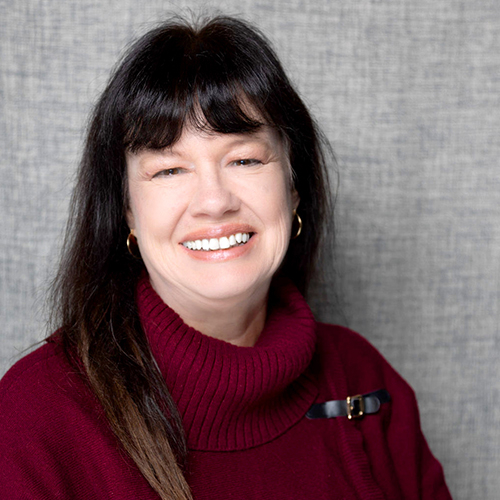
Navigating the Challenges of Tongue-Tie: Counseling and Anticipatory Guidance

Adrienne Guirguis, a board certified lactation consultant has over 25 years experience in helping breastfeeding infants and their families. She began her journey into the world of lactation after struggling to breastfeed her oldest son. She became an accredited La Leche League leader and was able to help babies breastfeed. Her experience with La Leche League led Adrienne to become a International Board Certified Lactation Consultant (IBCLC). She has been board certified for 20 years and has experience with a wide range of problems that may be experienced by new families. Adrienne has worked in hospital for over 10 years and then worked in community health for many years. She is a clinical practitioner, working hands on with families to improve feeding outcomes.
Adrienne continues her lactation education, constantly attending conferences and courses to stay up-to-date on the information and skills needed to benefit those who most need breastfeeding help. In 2022 Adrienne completed the Holistic Integrative/Functional Lactation course, a year long program followed by a residency. This course has increased her skills to provide the best care for the families with whom she works.
Adrienne also is an educator, working within the community to teach others the skills necessary to become lactation counselors and eventually board certified lactation consultants.
Parents with infants who are having breastfeeding issues due to tongue tie, face a complicated journey of conflicting information and differing opinions, complicated care plans and challenging emotions. Providing anticipatory guidance about the education providers receive on tongue tie, the many faceted symptoms of tongue tie for both parent and infant, the functional assessment versus the appearance of tongue and compensatory behaviors are all important for the parents to be able to make informed decisions and successfully navigate their way back to successful breastfeeding. Learn more about how to provide necessary information in a compassionate and useful way to already overwhelmed parents.
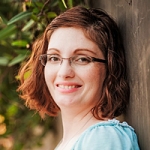

Dr. Bond is a trained laboratory and social scientist currently studying the social and public health impacts of shared human milk. Specific areas of interest include development of the microbiome of the infant, immunological responses from the parent and infant, impacts of non-parental human milk on development of the immune response and microbiome, and risk abatement practices by participants in private arrangement milk sharing. She has been specifically trained in health disparities sciences and engages in research with a perspective on social justice, gender equity, and health equity. As a Hawaiian and Cherokee heritage scholar, she has a particular passion for colonial impacts on infant care and feeding practices.
In the absence of adequate banked donor human milk for distribution to all infants in need, many families choose to engage in the practice of Private Arrangement Milk Sharing (PAMS), partially facilitated through social media, to procure human milk for their infants. Evidence regarding the participant and infant characteristics, and risk abatement practices is limited. This presentation explores the state-of-the-science of PAMS, characteristics of recipient participants and infants, donor screening practices, and risk abatement strategies. Results are contextualized with a socioecological framework of factors affecting infant feeding practices. Influence of health care providers, lactation support, birth attendant, and sources sought during decision making and the impact of these influences on supporting families are discussed.

Newborns are Children too! Ethical Challenges in Neonatology
 Franco Carnevale,
RN, PhD (Psych), PhD (Phil); Nurse, Psychologist, Clinical Ethicist(Children & Youth)
Franco Carnevale,
RN, PhD (Psych), PhD (Phil); Nurse, Psychologist, Clinical Ethicist(Children & Youth)

Franco A. Carnevale is a nurse, psychologist and clinical ethicist. He completed: an undergraduate nursing degree, three master's degrees (nursing, education, bioethics), and doctorate in counseling psychology at McGill University; a master’s degree in philosophy at Université de Sherbrooke and a second doctorate in moral philosophy at Université Laval. Dr. Carnevale is the founder and principal investigator for VOICE (Views On Interdisciplinary Childhood Ethics); a McGill University-based international initiative to advance knowledge and practices relating to ethical concerns in childhood. Current academic appointments include (McGill University): Full Professor, Ingram School of Nursing; Associate Member, Faculty of Medicine (Pediatrics); Adjunct Professor, Counselling Psychology; Affiliate Member, Biomedical Ethics Unit. Clinical appointments include: Associate Member, Pediatric Critical Care, Montreal Children's Hospital; Clinical Ethics Consultant, The Lighthouse, Children and Families (pediatric hospice and respite care); Clinical Ethicist, Child, Adolescent, and Family Services, Douglas Mental Health University Institute; Chair, Clinical Ethics Committee, Shriner's Hospitals for Children (Canada). Dr. Carnevale is a founding member of the Board of Directors of the World Federation of Pediatric Intensive and Critical Care Societies (WFPICCS) and founding member of the Editorial Board of Pediatric Critical Care Medicine.
 Franco Carnevale,
RN, PhD (Psych), PhD (Phil); Nurse, Psychologist, Clinical Ethicist(Children & Youth)
Franco Carnevale,
RN, PhD (Psych), PhD (Phil); Nurse, Psychologist, Clinical Ethicist(Children & Youth)
Advances in pediatric ethics have helped identify ethical concerns that arise in the care of children as well as strategies for addressing these concerns. Despite these important innovations, some significant ethical problems persist in neonatology, which seem rooted in particular challenges involved in the care of newborns and their families. These include concerns regarding: excessive care for infants with limited prognoses; dismissive care toward projected disability; providing palliative care; parental roles and responsibilities; inadequate pain management; cross-cultural disagreements; and moral distress among staff and parents. These tensions commonly relate to: (a) difficulties in defining infants’ best interests; (b) tensions regarding the respective decisional authority of parents and health professionals; and (c) tragic situations where all treatment options seem wrong. Strategies for analyzing and reconciling these ethical concerns will be discussed.

View Details / Enroll
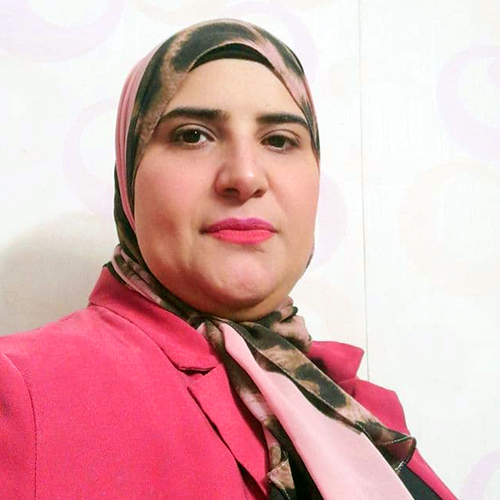

Dr.Fayrouz Essawy Pediatrician, Neonatologist, IBCLC • Neonatology Consultant • Bachelor of Medicine and surgery - Cairo University 2004 • Master degree of pediaterics - Ain shams University 2012 • Egyptian neonatology fellowship 2015 • IBCLC 2015 • LCCC course instructor & developer 2016 • Breastfeeding medicine specialist. • Baby friendly coordinator. • Harvard Graduate of Training of trainee program 2020. • Member of the Egyptian Society of Pediatrics • Member of the Egyptian lactation consultant association (ELCA) • Member of the academy of breastfeeding medicine (ABM) • Member of the international lactation consultant Association (ILCA)
The feeding of breast milk during the NICU admission reduces the risk of short-and long-term morbidities especially in premature infants. Breastmilk provides immunological, anti-infective, anti-inflammatory, epigenetic, and mucosal membrane protecting properties. The mechanisms by which human milk provides its protection are varied. These mechanisms include immunological and specific unique human milk components that are not present in formula. Thus, the feeding of mother’s own breastmilk should be a NICU priority and every NICU should have a breastmilk storage and handling policy. In this presentation we will discuss how we can counsel parents about the infection control measures and guidelines related to storage, handling and administration of breastmilk to babies in the NICU. Learn more about hospital grade pumps, pumping at home vs pumping in hospital setting, prevention and management of potential mistakes such as giving a child another mother’s milk and how to handle and store fortified breastmilk.

View Details / Enroll
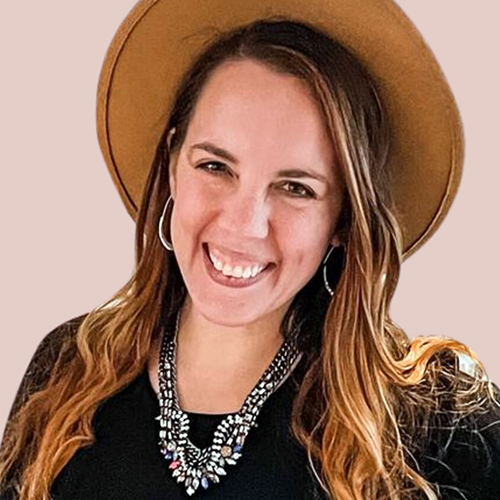
Not Handmaiden or Hero: The Impact of Nursing Identity on Nurse-Patient Relationship and Care

Maggie is a nurse, educator, and writer.
She began her nursing career in 2009 and has since practiced in hospitals and communities nationwide, primarily in labor and birth environments. Maggie maintains a bedside practice at a community hospital in Pennsylvania, in addition to her non-profit work as Founding Executive Director of Your BIRTH Partners.
Maggie is currently pursuing her PhD in Nursing and loves educating, mentoring, and learning alongside other nurses. Her research interests are trauma-informed care, secondary traumatic stress, trauma-responsive work environments, and nurse identity. She has always enjoyed writing, both through blogs and in scholarly environments. Much of her recent pursuits have focused on authoring a transformational memoir and contributing to academic journals.
Her advocacy focuses on improving perinatal care in hospital environments through trauma-informed care and community collaboration. When she's not dreaming up good trouble with other changemakers, she's doing yoga, reading a book, traveling, indulging in delicious food, soaking in fresh air outside, or hanging with her awesome partner and kids.
The role of nurses has often been dictated by those outside the profession. First, we were seen as doctors' handmaidens, which informed a collective consciousness that we were only valuable in support of paternalistic healthcare. As the role of nurses expanded, the public came to recognize our unique skills, identified us as the most trustworthy profession over two decades, and labeled us heroes. In response, we have positioned ourselves as a neutral identity that is "just there to help." However, this helper or savior identity has several negative ramifications including a preoccupation with how our care might be judged in the event of an unexpected outcome, which ultimately creates a divide between us & those in our care. Nurses benefit from identification of and reflection on their motivation for pursuing nursing, their current care practices, and how they can shift their mindset to release the rigidity, guilt, and fear that is associated with saviorism. We cannot allow patterns of saviorism to continue to dominate our profession. The health of our patients & ourselves depends on us stepping away from "helping" and into a standard of trauma-informed advocacy.
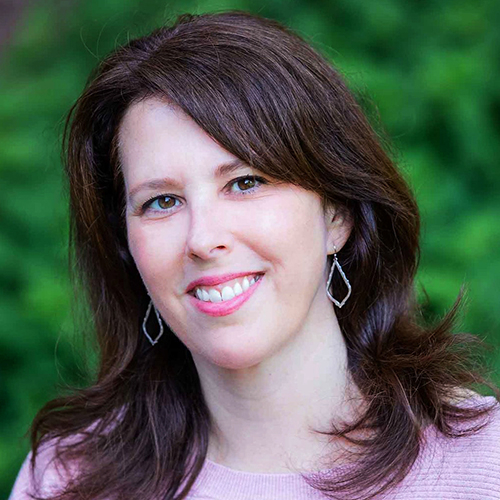
Nurturing the Future of Lactation Care: It’s up to All of Us!

Allison Walsh IBCLC LCCE FACCE is an International Board Certified Lactation Consultant (2006), Lamaze Certified Childbirth Educator (2000), and and doula (2000) in private practice in New York City. She is one of the three founders of the Lactation Learning Collective, which offers education and support to those on the pathway toward certification as International Board Certified Lactation Consultants along with families in need of lactation support. She trains childbirth educators as a Co-Director of the NYC Lamaze Childbirth Educator Program and is a past president of Lamaze. Allison has represented Lamaze International as a delegate to the United States Breastfeeding Committee since 2004, and has served in various leadership and committee roles. Allison is a member of the New York City Breastfeeding Leadership Council, the New York Lactation Consultant Association, and an active La Leche League Leader. She co-chaired the Save the Birthing Center Committee which was a group of professionals, advocates and consumers who fought valiantly but unsuccessfully to stop the closure of the Mount Sinai West (formerly Roosevelt) Birthing Center in New York City. Prior to the birth of her first child, Allison was a political consultant and community organizer. Skills from that “past life” are useful in all aspects of her work in the birth world. She is a graduate of Syracuse University and mother of three formerly breastfed children. Allison thinks that babies are the most interesting of all people and never underestimates the power of a good cup of tea, fresh air, and fresh bed linen.
The possibility of serving as a mentor can feel perfectly comfortable to some people, while overwhelming and frightening to others. This presentation will discuss the steps to becoming a mentor and fostering a productive mentoring relationship to grow the lactation care profession. Join one of the founders of NYC's Lactation Learning Collective for an in-depth look at the why’s and how’s of mentoring the next generation. Learn about IBLCE’s requirements and how to smooth the process and make it fulfilling for both mentees and mentors.





